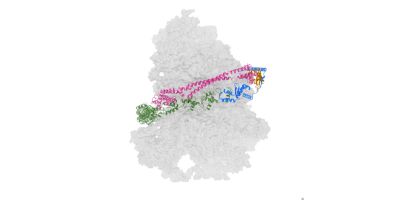New brain discovery could help in the fight against obesity

Researchers have discovered a cluster of brain cells that can be harnessed to reduce food intake and body weight.
Dr Pablo Blanco Martínez de Morentin, whose research was carried out at University of Aberdeen and continued at University of Leeds, led a group of researchers who have pinpointed a cluster of neurons within the brain that regulates hunger signals.
These neurons produce a neurotransmitter called GABA, which helps to suppress activity in hunger-stimulating cells elsewhere in the brain.
The paper, A brainstem to hypothalamic arcuate nucleus GABAergic circuit drives feeding, which is funded by European Research Council, Wellcome Trust, Biotechnology and Biological Sciences and the Medical Research Council was published today in Current Biology.
“We have found a new connection between an under-studied subset of neurones in the brainstem sensing food consumption that turn off primary hunger neurones in another part of the brain. This connection uses the chemical GABA,” explains Dr Pablo Blanco Martínez de Morentin.
This is exciting news as it opens up the potential for new strategies for weight regulation.
The team, including scientists from the University of Cambridge, recorded the activity of single cells and measured changes in daily food intake and body weight in mice.
Senior author, Professor Lora Heisler from the University of Aberdeen Rowett Institute said: “We know that the brain controls food intake, but how it does this has not been fully established. We’ve identified a cluster of cells within the brain that can be harnessed to reduce food intake and body weight.
“One way that they do this is through dampening the activity of cells that govern hunger. This is particularly important because one of the primary challenges to sticking to a diet and losing weight is feeling hunger.”
Researchers say this research could pave the way to develop more targeted medications which reduce food intake and body weight by tackling hunger, without causing nausea.
Obesity in the UK
According to the NHS, it's estimated that around 1 in every 4 adults and around 1 in every 5 children aged 10 to 11 are living with obesity.
It is a serious health concern that increases the risk of many other health conditions, such as type 2 diabetes, coronary heart disease, some types of cancer, such as breast cancer and bowel cancer, and stroke.
Living with overweight and obesity can also affect a person’s quality of life and contribute to mental health problems, such as depression.
“Excess weight is primarily caused by eating more calories than the body needs but how the brain controls hunger has not been fully defined. “ added Dr Pablo Blanco Martínez de Morentin.
This new discovery indicates that GABA plays a significant role in balancing hunger and food consumption which is an important piece in this complex puzzle.
Tackling obesity
The best way to treat obesity is to eat a healthy reduced-calorie diet and exercise regularly, however, in some cases, clinicians are prescribing drugs, such as liraglutide, to support in treatment, which can cause nausea.
“An interesting feature of these brainstem GABA cells is that the widely prescribed obesity medication liraglutide uses them to reduce food intake. We discovered that turning on these GABA cells reduces food intake without causing nausea, which is a common undesired side effect of liraglutide.” - Professor Lora Heisler from the University of Aberdeen Rowett Institute
Photo by i yunmai from Unsplash.




